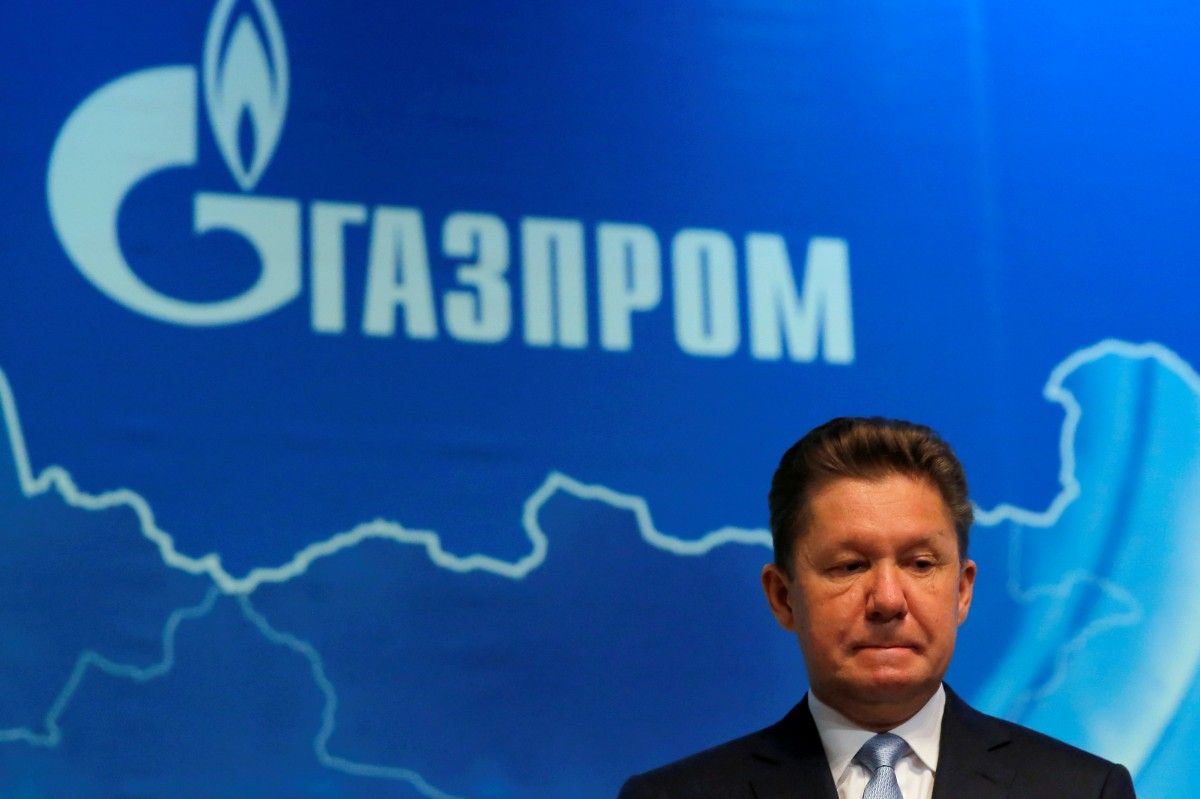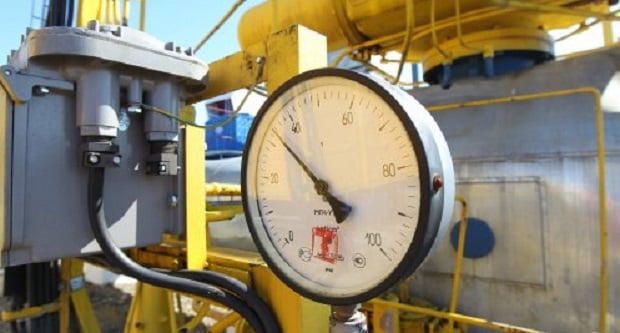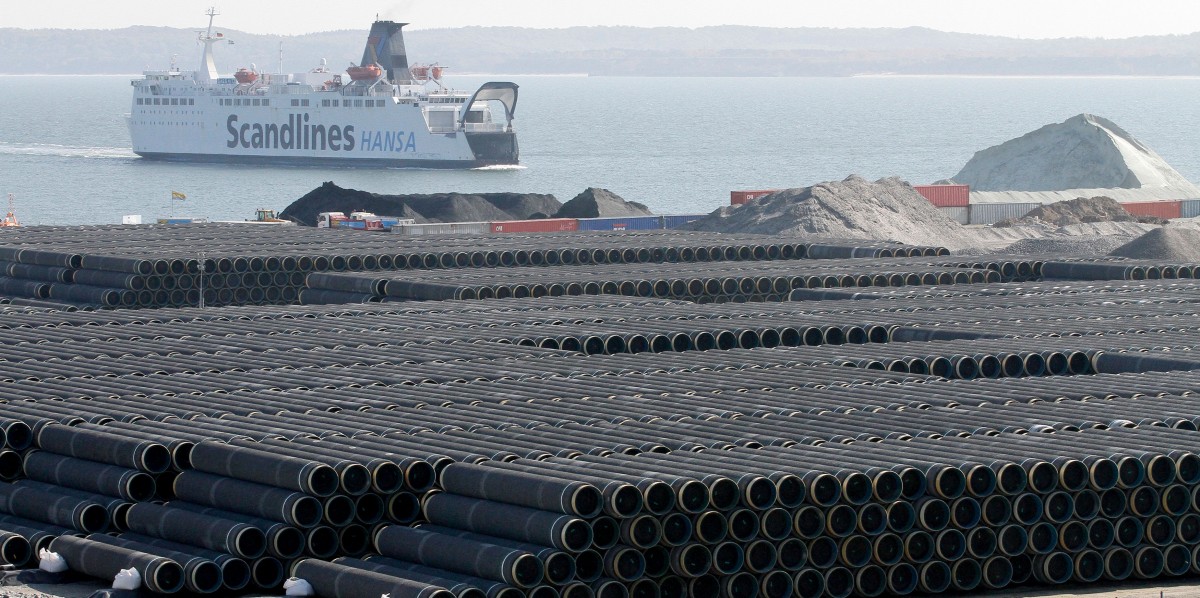
Gazprom surrender. Ukraine gets new trump card
Russian energy monopoly Gazprom has lost its long-standing dispute with the European Commission. The company has undertaken to fulfill the conditions put forward by the EU – it will give up all the preferences in the European markets and change the pricing. The fact that Gazprom has recognized violations on its part is in fact a huge trump card for Ukraine.
Anti-trust investigation of Gazprom’s actions in the European market, which the European Commission launched in 2011 by searching the offices of the ten subsidiaries of the Russian company and officially announced in 2012, reached the home stretch. The results are not in Gazprom’s favor as the company publicly agreed with the EU claims and undertook to fulfill over the next eight years all conditions that had been put forward.
The European Commission is satisfied with Gazprom’s assurances to switch to market mechanisms. "We believe that Gazprom's commitments will enable the free flow of gas in Central and Eastern Europe at competitive prices," said Margrethe Vestager, European Commissioner in charge of competition policy.
So, Gazprom pledged to lift all restrictions on gas re-export in Central and Eastern Europe, introduce competitive pricing in Bulgaria, Estonia, Latvia, Lithuania and Poland, tying it to the cost of fuel in Western European hubs. In case of violations, the customers will be allowed to launch a process of price revision. First of all, this applies to Baltic states, which, under contracts, do not have the right to review gas prices.
In addition, Gazprom committed to abandon the non-market advantages it had been receiving through the control of the gas transportation and gas distribution infrastructure (levying part of the profit from resale), as well as to provide infrastructure for reselling gas from Hungary, Poland and Slovakia to Baltic states.
Besides, Gazprom has pledged not to demand compensation from Bulgaria for refusing to construct the South Stream pipeline.
All Gazprom’s potential clients and interested parties should submit to the European Commission within seven weeks any comments and suggestions regarding the company’s stated commitments. After their consideration with the Russian company, a legally binding agreement will be concluded. If Gazprom violates its obligations, it will face a fine of up to 10% of the turnover.
By the way, such loyalty on the part of Gazprom was provoked including to some extent by a real prospect of being fined. Had they not agreed to surrender, they would have been sued, and they would’ve had absolutely no chance of winning that case. Then penalties amounting to 10% of the annual revenue would have followed (had the court proved that violations were systemic, the fine would have been raised to 30%). The amount is indeed significant. In 2013, when the EC claims were finalized, the revenue exceeded $150 billion. As of today, Gazprom is not in the best financial shape as a result of the fall in oil prices, to which the contracts are tied, and western sanctions that have curtailed the company's investment and technological plans. As a result, Gazprom's net profit for 2016 is projected at $7 billion, while in 2015 it was $15.4 billion. Besides, a lawsuit would have struck strongly on Gazprom's image that in the current situation is not what its "curator," the Kremlin, needs, to put it mildly.
As for Gazprom's legally binding obligation to Europe, the head of the Center for Energy Studies, Oleksandr Kharchenko, believes that this should not be expected to be signed in the near future. "The dialogue will continue. As far as I know, there has already been a declaration by Poland that they don’t agree with Gazprom's proposals, and the country will demand that the case be continued. But the monopoly has officially recognized limitations in its operations in the market, which the European Commission has put forward. Gazprom announced it was ready to fulfill them," the expert said.
Nevertheless, for Ukraine, the fact that Europe is winning over Gazprom, gives Ukraine a certain trump card.

Winning due to defeat
Gazprom’s obligations cannot be directly applied to Ukraine because the country is not an EU member. At the same time, they open a new window of opportunity for Ukraine.
"Our country is a member of the European Energy Community and a signatory of the relevant treaty, and it also signed an Association Agreement with the EU. These documents prescribe the implementation of the norms of the European energy legislation, which we have been carrying out. Ukraine can use the current precedent with Gazprom to further put forward similar demands to the Russian monopolist, with the help from the European side," said Mykhailo Honchar, director of the Center for Energy Studies.
In his opinion, Gazprom will categorically oppose this, arguing that our country is not an EU member. But this is a political assessment, not a legal one. In addition, the situation may become completely different following the decision of the Stockholm Arbitration, taking into account Gazprom’s current obligations. "They [Gazprom’s obligations] will play in our favor in any case. It’s just that ahead lies a lot of routine legal and analytical work," said Honchar.
Kharchenko believes that Gazprom's obligations to the EU cannot go unnoticed by the Stockholm Arbitration Chamber (suits were filed in June 2014 by both Naftogaz and Gazprom. Naftogaz's claims amount to $26.6 billion, Gazprom claims $38.7 billion).
“In its suit, Naftogaz insists that in its gas contract, Ukraine received the same conditions as the EU members states because Ukraine implements all European standards, including the Third energy package, and has already made a lot in the reform of the gas market. And, of course, for Ukraine, the European Commission's decision to limit Gazprom's activities is a positive thing. That is, the concessions by Gazprom mean that the requirements of the EC are fair, and the arbitration sees this. I am confident that one way or another, Gazprom will be limited in its activities and not be able to dictate its terms anymore, as it was before. Thus, Gazprom will be put in the market framework, in which other large companies of the energy sector are located," the expert said.
According to Kharchenko, the current decision of the European Commission forms an additional argument for all companies who are currently in the process of arbitration with Gazprom. The thing is that Gazprom has admitted that it was dishonest in its contracts.
Ukraine expects the Stockholm Arbitration Chamber’s decision regarding the contractual condition "take or pay", as well as the price, to be handed down by late April. In late June, an arbitration verdict must be issued on a Russian gas transit contract. The experts are inclined to believe that the very fact that Gazprom recognizes violations on its part is a great positive thing for Ukraine.
Meanwhile, Gazprom's current complacency may also mean the company's transition to a new strategy of its presence on the European gas market.

One step ahead
The Russian media have already commented on the situation regarding Gazprom, saying that the company’s current behavior may actually resolve the problems with the implementation of the Nord Stream-2 and increased access of Russians to the Opal pipeline, which Eastern European countries, especially Poland, categorically oppose.
Honchar refutes such conclusions. He believes that Gazprom’s current behavior will not help them achieve a positive outcome in cases with Opal and Nord Stream-2.
"By the way, Vestager quite unambiguously stated that the EU did not need Nord Stream-2. And Gazprom’s increased access to Opal is unlikely to happen amid such a strong resistance on the part of Poland," the expert said, adding that in this case it is possible to talk about Gazprom's new strategy.
Its previous strategy has always based on one simple postulate - we will sell less gas, but at a higher price. Now the expert believes the Russians will try to work differently - dumping prices to get a bigger share of the European gas market. In addition, Russian gas purchases increased due to a drop in production in the North Sea. And only after a certain period of time will the Russians return to their old strategy, Honchar says.
"We’ll see how it works out, but Gazprom against the background of these commitments will at least try to win something off of them," Honchar concluded.
By the way, such a preventive reduction in gas prices had been offered to Gazprom by Russian analysts and experts back 2012, at the peak of oil prices, in order to get the biggest share of the market. But the monopolist refused, counting on quick profits. And it turned out quite differently - the stagnation of gas trade, exacerbated by a fall in oil prices, and hence gas prices as well. New realities dictate new conditions - and Gazprom had to agree with the findings of the European Commission. And Ukraine's task is to take advantage of the situation, make every effort to bend Gazprom, as the European Union has, and enlist EU support, armed with European arguments and expertise. And this support should not be limited to statements.
And there is something to fight for: a precedent with Gazprom is the beginning of a drastic change in the rules of the game on the gas market, which will entail a high competition with liquefied gas, which will soon flow into Europe en masse. And this means that the gas prices will keep falling. In order to maintain its market share, Gazprom will have to make further, significant concessions. It would be a shame not to take advantage of the situation.
Nana Chornaya

